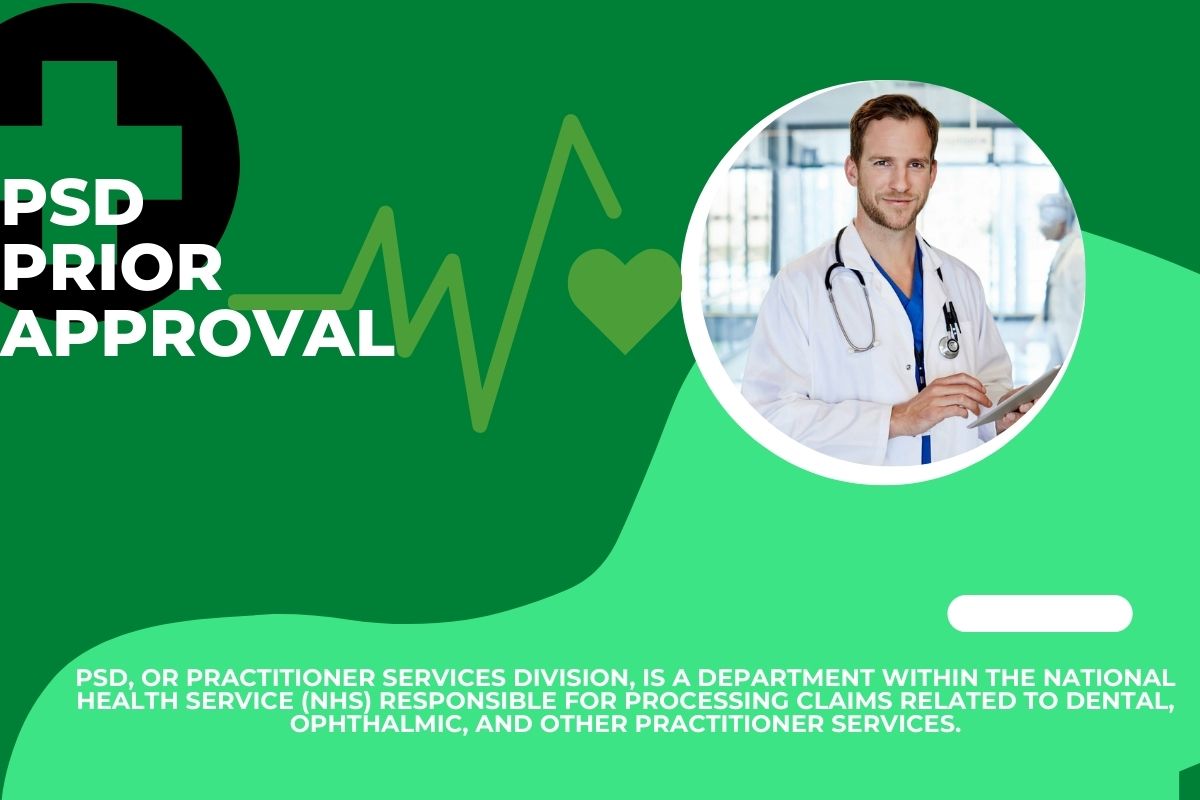Navigating the Maze: A Comprehensive Guide to PSD Prior Approval
Deciphering the intricacies of healthcare costs often feels like navigating an ancient labyrinth, with terms like prior approval, denials, and pre-authorizations adding layers of complexity. In this comprehensive guide, we aim to demystify the realm of PSD Prior Approval, empowering you to confidently navigate the healthcare maze.
Unravelling PSD Prior Approval
What is PSD Prior Approval?
PSD, or Practitioner Services Division, is a department within the National Health Service (NHS) in Scotland responsible for processing claims related to dental, ophthalmic, and other practitioner services. PSD prior approval is a system ensuring that specific high-cost treatments undergo authorization by the PSD team before being administered. This meticulous process aims to guarantee the delivery of the most appropriate and cost-effective care, ultimately managing healthcare expenditures.
Understanding the Rationale
Why Prior Approval?
As healthcare costs continue to escalate, the NHS faces increasing pressure on its resources. PSD prior approval acts as a gatekeeper, serving three critical purposes:
- Clinical Appropriateness: Rigorous review by medical experts ensures treatment plans are necessary and evidence-based.
- Cost Control: Authorization of high-cost procedures allows PSD to manage healthcare spending, maintaining reasonable premiums and out-of-pocket costs for patients.
- Quality Assurance: The review process upholds high standards of care by identifying potential issues with treatment plans.
When is PSD Prior Approval Required?
Thresholds and Examples
Not all treatments necessitate prior approval. Generally, it applies to procedures surpassing specific cost thresholds, currently set at £600 for dental services and £500 for ophthalmic services (as of November 2023). Procedures requiring prior approval encompass
- Complex dental procedures: Crowns, bridges, implants, and advanced orthodontic treatments.
- Cataract surgery: For patients not meeting specific NHS criteria.
- Glaucoma surgeries: Certain laser procedures and drainage implants.
Exceptions to the Rule
Some Treatments Exempt
Certain categories of treatment are exempt from prior approval, even if they exceed the cost threshold. These include:
- Emergency procedures: Urgent care required to address immediate threats to health.
- Continuing care: Ongoing treatment plans already approved by PSD.
- Domiciliary visits: Care provided to patients in their homes.
The Approval Process
Navigating the Approval Journey
If your healthcare provider suggests a treatment requiring prior approval, here’s the step-by-step process:
- Submitting the Pre-Approval Request: Your healthcare provider submits a detailed request to the PSD team, outlining the proposed treatment plan, medical justification, and estimated costs.
- Review and Decision by PSD: Medical experts at PSD review the request, providing a decision within a defined timeframe. You are then notified of the decision (approval or denial) by your healthcare provider.
- Appeal Process for Denied Requests: In case of denial, you have the right to appeal the decision. Your healthcare provider can assist in submitting an appeal with additional information or clarifications.
Pros and Cons of PSD Prior Approval
Balancing Act
Like any system, PSD prior approval has its advantages and disadvantages. It ensures judicious use of resources, maintains quality standards, but may pose challenges in terms of delays and potential denials. Understanding the intricacies empowers patients to navigate the healthcare landscape with awareness and confidence.
The Bottom Line
Unravelling the intricacies of PSD prior approval illuminates a critical facet of the healthcare landscape, providing individuals with a roadmap to navigate the complexities of medical costs. As we journeyed through the rationale, application thresholds, and the approval process, it becomes evident that PSD serves as a crucial gatekeeper, balancing the need for clinical appropriateness, cost control, and quality assurance.
Empowered with the knowledge of PSD prior approval, patients are better equipped to engage with their healthcare providers and proactively participate in the decision-making process. Understanding the nuances of this system fosters a sense of confidence and transparency, turning the once mystifying maze of healthcare costs into a navigable terrain for informed decision-making and improved patient outcomes.











